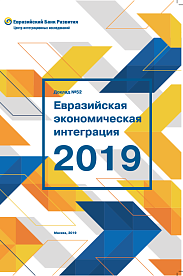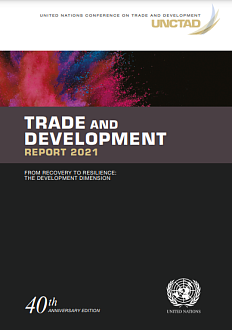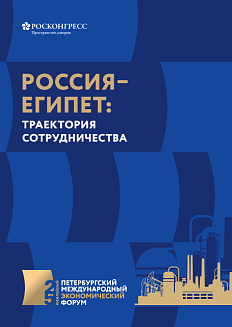Eurasian Economic Integration 2019 (Report 52)

One of the key 2018 events for the EAEU was the adoption of the Declaration on Further Development of Integration Processes within the Framework of the EAEU, signed in December in Saint Petersburg during a meeting of the Supreme Eurasian Economic Council (SEEC). The EAEU Customs Code (CC), approved by a special treaty signed on April 11, 2017, came into force. The SEEC approved the Programme for the Creation of Common Oil and Petroleum Products Market and the Programme for the Creation of the Common Gas Market. The work to create a common EAEU alcohol and tobacco market, as well as the Single Services Market, is under way. Also, the Council signed the Agreement for Harmonization of Financial Market Legislation of EAEU Member States. Much effort is channeled into digitization.
In 2018, economic growth in the EAEU displayed certain positive trends: All EAEU member states reported GDP and industrial production growth, while inflation rates remained within the range stipulated by the EAEU Treaty. Development of trade in goods and services, implementation of investment-capital-raising programmes, and expansion of cooperative ties between member-state enterprises made a significant contribution to economic growth of EAEU member states. The report reveals main macroeconomic parameters of the economic growth in the EAEU member states and covers mutual trade in goods and services, investment cooperation, and external trade.
The authors of the report emphasize the importance of expanding cooperative ties among EAEU member states for development of industry and trade, and for general economic growth of the Union. In 2018, progress was achieved both in implementation of previously launched projects and in development of new projects, including those with EDB participation.
The fact that in 2018 all EAEU member states rose in the Ease of Doing Business ranking was one of the key outcomes of joint active work carried out by the EDB, the EFSD, supranational EAEU institutions, national agencies, and the business communities of EAEU member states to expand cooperative ties among member state enterprises, improve the business environment in the common economic space, make goods and services produced within the EAEU more competitive, and promote investment cooperation. Kazakhstan demonstrated the greatest improvement (up 8 points), taking the highest position among the EAEU member states (28th place) and outpacing Russia (36th place) by a wide margin. Kyrgyzstan also recorded a large gain in 2018 (up 7 points), but its ranking remains the lowest among the EAEU member states (70th place).
Anlytics on the topic

This report by UNCTAD deals with global trends in economy, trade, and sustainable development.

Asia’s goods factories are looking for new opportunities to connect with Europe. By opening up new and expanding old transport corridors, Russia is playing an increasingly important role in the Eurasian Economic Space. The country is approaching the St. Petersburg International Economic Forum with a new Spatial Development Strategy, envisaging progress in high-speed communication lines and growing capacity of many important railways.

The report «Russia-Egypt: cooperation trajectory» was prepared by the team of authors of the HSE Center for African Studies and the Center for International Trade and Integration with the support of the Roscongress Foundation for the XXV St. Petersburg International Economic Forum, in which Egypt takes part as a guest country.

A team of experts at the Organisation for Economic Co-operation and Development has observed an increase in the number of users of e-commerce services during the COVID-19 pandemic and compiled a series of recommendations on building a regulatory framework to promote further digitalization in the retail sector.

